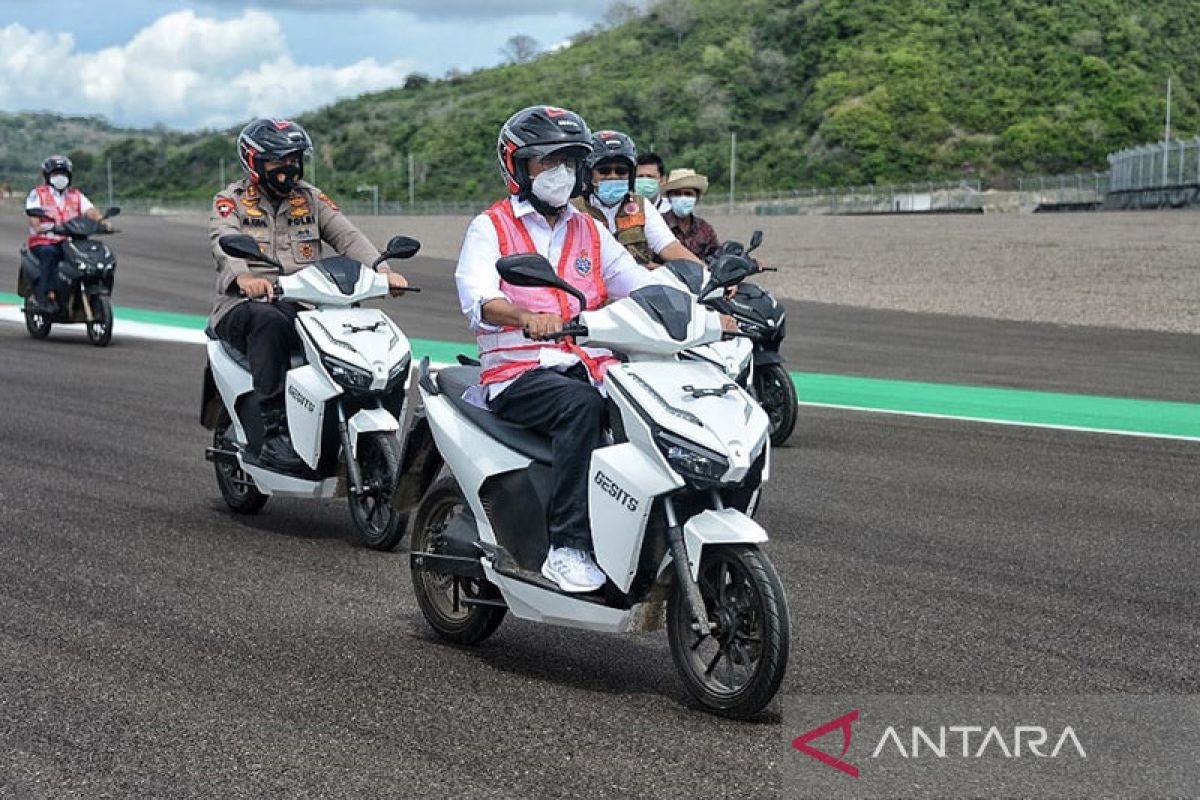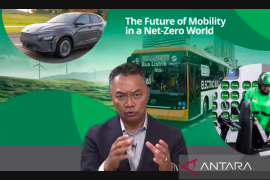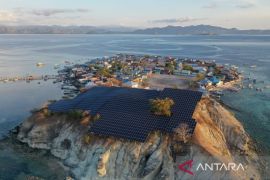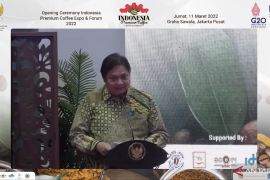Jakarta (ANTARA) - Indonesia, while holding the G20 presidency for the first time this year in the G20 forum since being founded in 1999, determines priority agendas and leads meetings of countries constituting 85 percent of global GDP.
With the main theme, "Recover Together, Recover Stronger," Indonesia has determined the transition of sustainable energy or green energy as one of the priority issues brought up at the G20 Summit.
This summit is planned to discuss the energy transition to a low-carbon economy and application of green energy in both developed and developing countries.
In Indonesia, one of the ways to realize the application of green energy is by building an electric vehicle ecosystem.
President Joko Widodo (Jokowi), at the launch of the Collaborative Program for the Electric Vehicle Ecosystem Development in Jakarta, emphasized that the government continued to pursue energy transformation towards new and renewable energy (EBT), including electric vehicles.
The electric vehicle ecosystem will cover upstream to downstream industries, starting from the production of electric motors and their batteries to the provision of battery swapping stations.
Jokowi is optimistic that through the development of the electric vehicle ecosystem, Indonesia would be able to become a producer of electric vehicles. In addition, the zero-carbon emission target in 2060 can be realized.
Related news: Ministry, INKA to build electric buses for G20 Summit
The government also expressed its openness to establishing collaboration with various countries to encourage the public to use electric vehicles that are viewed as being more environmentally friendly.
In the early stages, the collaboration between State-Owned Enterprises (SOEs) and the private sector is a real step to accelerate the realization of an integrated electric vehicle ecosystem in Indonesia.
Electrum, a joint venture company between Gojek and TBS Energi Utama (TBS), along with Pertamina, Gesits, and Gogoro, a technology company from Taiwan, synergize to accelerate the development of the most complete and integrated electric vehicle ecosystem in Indonesia.
Related news: Indonesia aims to put 2 million electric vehicles on Indonesian roads
Climate Change
Indonesia’s Presidency in the G20 has a strategic role in discussing various issues, including climate change, as the main cause of global warming.
Global warming has become a serious issue that is being discussed in all countries today. All countries are expected to make concrete efforts to avoid a rise in the global average temperature that can likely cause ecological disasters and impact the survival of living things.
The government, through the Ministry of Transportation, also encourages massive use of electric vehicles as an effort to reduce carbon emissions in the transportation sector.
Minister of Transportation Budi Karya Sumadi remarked that the use of electric vehicles is one of the best steps to suppress climate change.
Sumadi stated that the government was committed to handling climate change and reducing emissions in Indonesia’s transportation sector including by issuing Presidential Regulation Number 55 of 2019 on the Acceleration of the Battery-Based Electric Motor Vehicle (KBLBB) Program for Road Transportation.
He also highlighted that the Transportation Ministry was currently compiling a Roadmap for Transforming Battery-Based Electric Motorized Vehicles (KBLBB) as Government Operational Vehicles and Public Transportation.
In addition, the government will provide incentives for reducing type test rates for battery-based electric motor vehicles.
At the G20 Summit in Bali, electric buses will also be used to transport G20 participants from Ngurah Rai Airport to the location of the G20 event.
The G20 event must be used as a momentum to build sustainable development and better environmental sustainability in the future.
Related news: Transportation Ministry holds electric car tour from Jakarta to Jambi
In line with this, the Ministry of Finance has set a special tariff of zero-percent import duty for Incompletely Knocked Down (IKD) imported motor vehicles to encourage the Battery-Based Electric Motor Vehicle (KBLBB) industry.
This is stipulated through Minister of Finance Regulation Number PMK-13/MK.010/22 concerning the Fourth Amendment to Minister of Finance Regulation Number 6/PMK.010/2017 concerning Stipulation of the Goods Classification System and Imposition of Import Duty Tariffs on Imported Goods.
Several of these regulations were implemented to realize Jokowi's directive that targets two million electric vehicles in Indonesia by 2025 to be used by people for daily activities.
Jokowi is also keen that Indonesia becomes an exporter and major player in the electric vehicle industry.
Clean Energy Support
People tend to underestimate the use of electric vehicles that do not produce carbon emissions but consume energy from coal or fossil energy-based steam power plants.
Transportation observer Djoko Setijowarno stated that the use of electric vehicles at the G20 Summit in Bali was expected as the start of the widespread use of alternative energy in Indonesia.
He noted that the use of environment-friendly vehicles in Indonesia can be increased in several ways. In addition to the use of battery-based electric vehicles, the effort can be made through the use of gas-fueled or solar-powered vehicles.
The use of electric vehicles should also be accompanied by efforts to generate electricity from new and renewable energy (EBT) to significantly reduce the impact of climate change, he stated.
Related news: PEVS 2022 to become educative platform on electric vehicles
According to Setijowarno, if the electric vehicle is powered by sources of renewable energy (EBT), such as the Solar Power Plant (PLTS), it means that the electric vehicle does not produce gas emissions at all.
The head of the MTI Center for Advocacy and Community Affairs lauded the government's steps to encourage the widespread use of environmentally friendly vehicles.
However, policies regarding the use of electric vehicles from upstream to downstream are deemed necessary, including affordable vehicle prices, the ability to meet clean energy needs, and the availability of Public Electric Vehicle Charging Stations (SPKLU) that still had to be improved.
Setijowarno addressed that currently, electric vehicles are a solution to save the environment since they help to reduce carbon emissions from the transportation sector.
It is hoped that in future, the electric vehicle ecosystem would become one of the sectors that contributes to dealing with climate change.
Related news: Several regions outside Java-Bali have passed Omicron peak: minister
Related news: Jakarta's 140 COVID-19 hospitals record 29-percent decline in BOR










